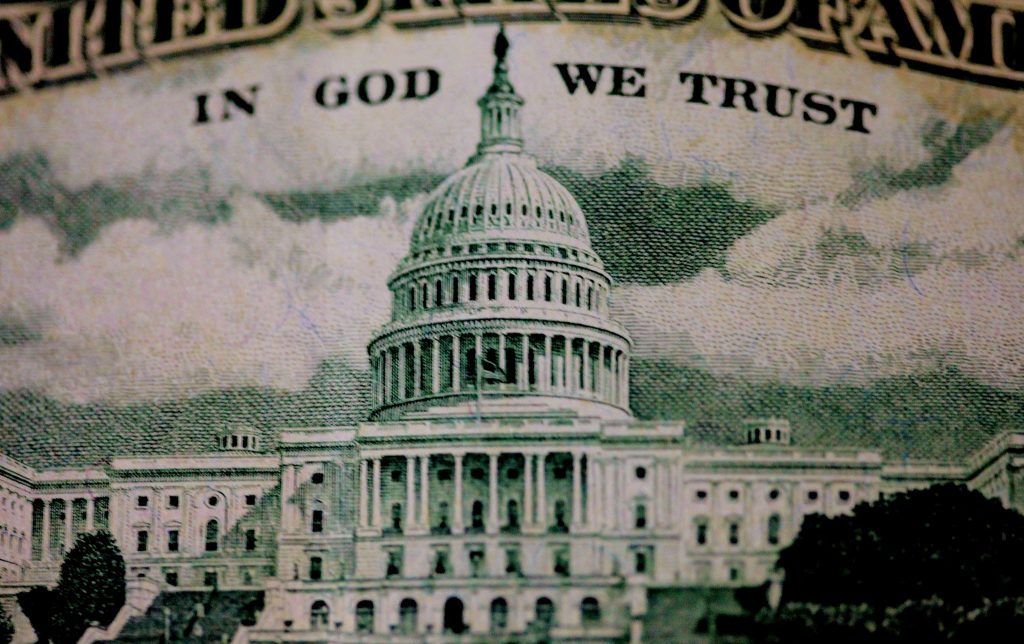
Last week, the President of the United States stood in the White House Rose Garden and said, “I’m the most transparent President probably in the history of this country.” While every day seems to bring a new, staggeringly dishonest rhetorical strategy from the Trump Administration, this statement qualified as uniquely disingenuous, even by the low standards of our current political environment.
The reality, of course, is that the Trump Administration qualifies as one of the least transparent, most opaque White Houses in the history of the United States. The President has sought to hide basic information and documents that previous chief executives released as a matter of course.
Nowhere is this lack of transparency more evident than with the President’s tax returns and other financial information. An administration defined by its inconsistency and lack of focus has waged a fierce, concerted battle to shield this information from the view of the American people. And since Donald Trump’s entire life has been defined by a lack of adherence to any principles beyond his own self-gratification, it seems clear the administration’s resistance is motivated by fear of what is in the President’s financial records and not adherence to the law or even an expansive view of executive privilege.
Hiding the Tax Returns
In May, the House Ways and Means Committee, led by Chairman Richard Neal (D-MA), officially subpoenaed six years of the President’s tax returns. This subpoena is well within the committee’s legal authority under Section 6103 of the Internal Revenue Code, which says, in part, “Upon written request from the chairman of the Committee on Ways and Means of the House of Representatives, the chairman of the Committee on Finance of the Senate, or the chairman of the Joint Committee on Taxation, the Secretary shall furnish such committee with any return or return information specified in such request….” (emphasis added).
Treasury Secretary Steve Mnuchin refused to comply with that subpoena, arguing that it did not further any “legitimate legislative purpose.” However, the statute in question does not include that language or anything like it, and, even if it did, the President’s tax returns are crucial to Congress’ oversight responsibilities, which qualify as “legitimate legislative purposes.”
The Treasury Secretary’s legal reasoning, such as it is, was not shared by the IRS. An internal IRS legal memo said that the Treasury Department had to hand over the President’s tax returns unless the President invoked executive privilege, which he has not done.
The controversy is sure to end up in federal court.
Even some harsh critics of the President are skeptical of the true importance of the Trump tax returns – after all, they are unlikely to include a line item labeled “Illegal Russian Bribe Money.” However, The New York Times has already uncovered significant evidence that the President’s famous business acumen was a made-for-TV fiction. Further information along these lines could prove profoundly embarrassing for Trump, whose reputation as a shrewd businessman was a significant asset for him in the 2016 election.
The Fight over Financial Records
But Democrats and the White House are not just fighting over Trump’s tax returns. The President’s lawyers are vigorously fighting attempts by House Democrats to subpoena other financial records. So far, they are losing that fight, though no one should be confident that the conservative majority on the Supreme Court will ultimately rule against the President.
The House Oversight Committee has issued a subpoena to Mazars USA LLP, the President’s long-time accountants. Trump’s lawyers filed suit in federal court to block Mazars from complying with the subpoena.
Trump’s personal lawyers had argued that the subpoena amounted to harassment because it did not further a legitimate legislative purpose. District Court Judge Amit Mehta strongly rejected those arguments in a May 20 ruling. Judge Mehta ruled that the Oversight Committee’s subpoena was a legitimate exercise of Congress’ Article 1 powers, meaning that the President cannot block Mazars from complying with the subpoena.
In another ruling just two days later, US District Judge Edgardo Ramos ruled against the President’s attempt to block House subpoenas issued to Deutsche Bank and Capital One, two institutions that loaned money to Trump during his days as a businessman. Like Judge Mehta, Judge Ramos ruled that the subpoenas – this time issued by the House Financial Services and Intelligence Committees – served a legitimate legislative purpose.
Both judges made clear that the cases were not particularly close calls.
In one of the pleasing little ironies that occasionally arises in American politics and jurisprudence, the President’s lawyers have said that they intend to appeal Judge Mehta’s ruling to the D.C. Circuit Court of Appeals, where the case will be heard by a three-judge panel. The chief judge of that court? Merrick Garland, whose 2016 appointment to the US Supreme Court was successfully blocked by Senate Republicans.



Leave a Comment